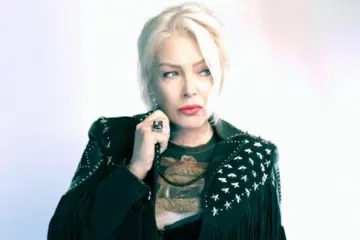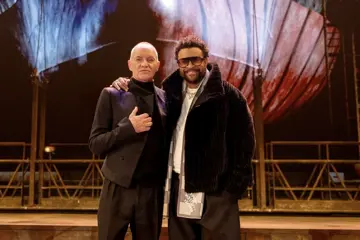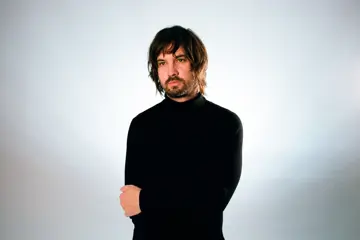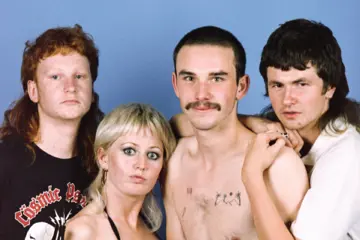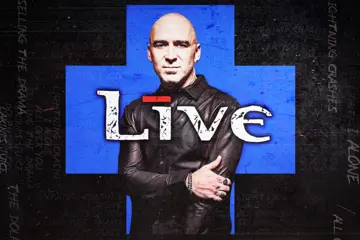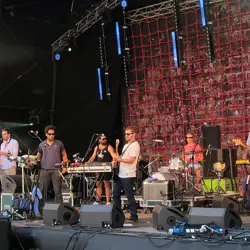 The Black Seeds
The Black SeedsThe Black Seeds are an institution of modern reggae music. Signed to cult imprint Easy Star Records (home to Easy Star All Stars) with five studio albums to their credit, the New Zealand eight-piece are consistently welcomed by audiences in Europe, America, Australia and their own country. Rolling Stone recently described them as 'the best reggae act in the world right now'.
“Oh, there's a couple of good quotes and there's a couple of bad ones,” vocalist Barnaby Weir laughs of the band's acclaim. “You take the praise when it's going and you forge ahead when it's not in your favour. Everyone has a different opinion. It all really depends on how well their argument is backed-up or not backed-up. You know, if someone who really knew what they were talking about rubbished us, I'd take that onboard.”
It hasn't come quickly, though. The band formed in 1998 against the backdrop of New Zealand's fertile reggae community. Since then, it's been a steady upward slog for the band. In addition to the standard vicissitudes faced by an upcoming band, The Black Seeds have had to negotiate tours, writing, recording and management with a line-up of eight permanent members.
“It was a slow start for the band, yeah. When we got together in 1998, it was a different set-up for the band and we didn't really start making our first album until 1999/2000. We didn't release it until the end of 2000,” Weir reflects. “Since then, it's gone very quickly. And we keep getting better. I suppose I am a little surprised that we've managed to keep something going.
Don't miss a beat with our FREE daily newsletter
“We've gotten better at dealing with eight members. Over the years we've gotten better at communicating and dealing with each other. You've still got eight people in the band with different ideas and opinions. We've gotten better at collaborating, though. That was really one of our main goals for our last record. We wanted to collaborate more. I've actually come to really appreciate everyone's opinions more as a result.”
Their key accomplishment has been innovation. While reggae is often framed as predictable music, The Black Seeds have always brought a different spin to the genre. They separated themselves from their New Zealand brethren from the outset with lashings of funk and afrobeat. 2012's Dust And Dirt album even saw them tackle electronica, soul and hard rock in an effort to expand their sound.
“We've always thought of ourselves as that kind of act,” Weir says. “Although we're proud to be included in any kind of reggae umbrella, we've always jammed out different rhythms and vibes and people who get that tend to get us the most. When people compare us to a Jamaican sound system or a classic reggae act, it just doesn't feel appropriate because we're quite different to that.
“Some people like that, some purists don't. When we play at reggae festivals in Germany, we're right on the line there. You know, we're a little outside the box. Reggae-ish, but also funk and other kinds of sounds. I'm happy with that but it creates problems for some people because they obviously want to categorise us,” the vocalist laughs. “Once they hear we're from New Zealand, I think we start to make a bit of sense.
“You know, we really don't do it like they do it over there. It's not that we don't like it, we just like to do our own thing.”
The Black Seeds will be playing the following dates:
Friday 19 April - Coolangatta Hotel, Gold Coast QLD
Saturday 20 April - The Big Pineapple Music Festival QLD
Wednesday 24 April - Metropolis, Fremantle WA
Thursday 25 April - The Gov, Adelaide SA
Friday 26 April - Coogee Bay Hotel, Coogee NSW
Saturday 27 April - The Hi-Fi, Melbourne VIC








